Organising and strategizing for transformative power
This training weaves together learning from our ‘Ecology of Social Movements Training’ with new material exploring transversal and transnational organising.
We’re living at a historical point of disruption which contains both great peril and promise. The stalled engine of neoliberal growth, bankrupted political leadership, an increasing sense of distributive injustice, and the fierce urgency of the ecological now are the cracks out of which something new can emerge. But to challenge the interlocking systems of oppression we face we need to nurture interconnected movements and struggles. This training will help us to explore the challenges and develop our capacity for ambitious and transformative movement building.
Built around the core of our Ecology of Social Movement training, this training is for experienced activists and organisers involved in movement thinking and practice from across Europe. We’ll inquire deeply into how our organisations and networks relate to the wider ecology of activism within our movements – and how these movements relate to wider struggles in the ever changing cultural, socio-political and ecological context. Participants will engage in deep analysis of their own movement practice and movement ecology. They will have opportunities to explore and develop skills and understanding related to bridge building within and between movements, and give attention to the opportunities and challenges of transnational movement building.
The training will be facilitated by an international team of movement organisers and thinkers from the Ulex Project team, the European Community Organising Network, European Alternatives, and University of Ireland Maynooth. Together these organisations are developing the Movement Learning Catalyst* project.
Strengthening European Social Movement Ecology
The core elements of the training aim to help us understand the opportunities and threats of this crucial moment and to empower our efforts to contest our future. We’ll explore the life cycle of social movements and seek to learn from social movement history. We’ll survey theories of social change, identifying tensions and complementarities. We will increase our skills in strategising, planning and working for change in the complex ecologies and systems of our movements and societies. And we will ask how big picture thinking can inspire and empower our work together.
The course blends a participatory inquiry methodology with the Ulex team’s framework for strategic analysis and deeper political reflection. It will incorporate key content developed within the Movement Learning Catalyst* project, which explores skills for transversal and transnational movement building. The training will support the development of creative and strategic responses for radical social change. It will provide space for deep reflection on practice and the opportunity to learn from each other’s struggles.
This course involves deep and critical thinking, so participants should:
We will select participants to bring together a range of people from diverse movements and contexts across Europe to share and learn from each other.
We will explore:
Key areas of study and reflection include:
Theories of Social Change: Exploring a wide spectrum of theories of change, their contradictions and complementarities, and how we can engage with the complexity of social change processes.
Movement Seasons and Cycles: Reflecting on the ebb and flow of movement life-cycles, recognising phases of preparation, engagement and regrouping. We’ll derive learning from history and contemporary case studies.
Movement Ecosystems and Diversity: Mapping our movements and analysing our capabilities, strengths and weaknesses, the tensions and synergies, and identifying enhancing interventions and the roles we can play within them.
Planning and Strategising: Applying tools and thinking about long term strategy, context analysis and the creation of agile frameworks that adapt and respond to feedback.
Transnational Organising: Delving into the challenges and opportunities for building movements and networks with transnational capabilities.
We won’t just explore theories. We will also ask what we do with them – personally and collectively. This course will help us to think afresh and to gain perspective.
Why does it matter?
The interlocking and pervasive nature of the systems of oppression we face means that challenging them involves building interconnected movements of resistance and regeneration. At the same time, the difficulties involved in forming synergising relationships between distinct parts of our movements are widely recognised as a defining challenge for organising today. In a Europe-wide survey conducted in 2020, activists told us that the inability to build connections across movements and the presence of high levels of fragmentation within them, was one of the most incapacitating challenges they faced.
Attempts to challenge injustice and domination, from the ground up, are rooted in people’s lived experience. The specificity of their lives and the histories of their communities generates an irreducible diversity of struggles within our movements. With this in mind, Ulex aims to both support diverse struggles on their own terms and also to foster relationships between them that can contribute towards transversal and transnational majority social movement building capable of driving radical social and ecological transformation. Our sense of the strategic importance of learning to work better with the necessary diversity in our movements and to increase our ability to build empowering connections across those differences led us to a key concept informing our pedagogical approach: the ecology of social movements.
Thinking in terms of an ecology of movements, as well as transversal and transnational movement building, encourages us to look at our movements in terms of the relationships between things: roles, strategic approaches, struggles, issues, socio-political identities and histories. It can help us to appreciate and understand the specific internal dynamics of diverse struggles and approaches, while also becoming better able to situate them in a wider context. These ways of looking at our movements can also offer more nuanced understanding of the relationship between agency and the complexity of social change and help us to nurture movement building practices for deep transformative power.
A year-long option
In addition to the week-long residential training, we are aiming to support selected participants to take part in a pilot 12-18 month long Movement Learning Catalyst programme. This will incorporate peer-to-peer elements, mentoring, online gatherings, and some additional in-person trainings (either regionally organised or at one of Ulex’s venues). All participants on this training are invited to apply to join this programme and we can provide additional information on request. The application form includes the opportunity to request joining the Movement Learning Catalyst programme. More details here.
Venue
We expect this training to be hosted at Vidàlia.
*The Movement Learning Catalyst is a collaborative project bringing together the Ulex Project, European Alternatives, the European Community Organising Network and University of Ireland Maynooth. It aims to generate new resources and methods to enhance social movement learning, helping to embed learning more effectively within movement practice.
In the solidarity economy:
(See details of our approach to radical economics here)
Contact us
to apply
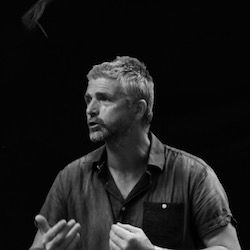
Location:
G has been involved in social movement organising and education since the late 1980’s. He is a highly regarded trainer and has designed numerous training programmes covering areas such as psychosocial resilience in activism, the ecology of social movements, and leaderful organising. As a founding member of the Ulex Project, he is known for highly innovative work blending pedagogical methodologies. This holistic approach to activist learning has inspired numerous training initiatives across Europe. He currently steers the strategic development of the Ulex Project and its social movement capacity building programme.
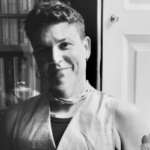
Location:
Ilaj’s background is in grassroots organising, involving them in various strands of social movement work for nearly two decades, mostly in Eastern and Southern Europe. In more recent years, they have turned their attention to broader European movement building as part of the Ulex core team, where they design programmes, coordinate training teams and facilitate on a wide range of training courses. Ilaj is an experienced trainer with a broad range of skills, particularly in holding space for collective exploration of burnout, weathering repression, navigating trauma and cultivating solidarity in social movements. They are passionate about working with body awareness as a radical means of deconstructing internalised systems of oppression. They have been exploring the intersection between transformative somatics and political organising for a number of years.

Location:
Hilal Demir, an anarcha-queer DJing at home is an activist, trainer, facilitator for 20 + years and has experience on organizing, strategizing on nonviolent direct action, campaign and social movement levels, working with power, active solidarity, resilience, repression and security. She is passionate about leading informal learning experiences, community organizing, group dynamics and organisational cultures, supporting activists and organizations to build long lasting transformative social movements for a just future.
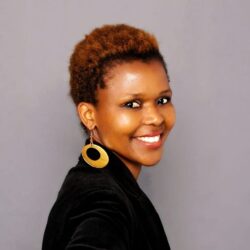
Location:
Nontokozo says: I have always been passionate about building community, inner engineering, group dynamics, motivating and empowering others. I enjoy tackling women issues, building bridges of hope and healing between Africa & Europe and beyond, I love sharing knowledge on conscious living, advocating for climate and social justice, and regenerative education. My work includes education on diversity and racism awareness. I am a firm believer of UBUNTU an Indigenous African Knowledge System – “I am because we are”. I am committed to creating safe spaces and holistic events for individuals and group processes, to support in achieving desired goals and creating a common vision, using indigenous wisdom, processwork facilitation and other methodologies.’
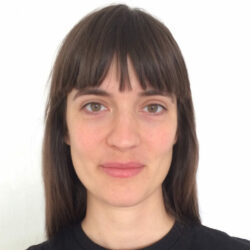
Location:
Tashy Endres has 18 years of experience in movements for social and spatial justice. This includes long-standing involvements in the movement of unemployed and landless workers in Buenos Aires, Occupy Wall Street in New York City, Decolonizing Architecture in Bethlehem, Kotti & Co (a tenants initiative in the Berlin social housing system), Berlin Rent Referendum and the Jumpstarting Working Group of Expropriating Deutsche Wohnen & Co in Berlin, which she/they co-founded and is currently active in. Tashy works as a political educator, facilitator, trainer and strategy coach in social movements and political organisations in the fields of transformative (community) organizing, social justice and critical diversity, nonviolent communication and conflict transformation through an intersectional lense as well as regenerative organizing and activism.
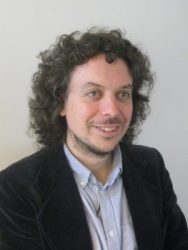
Location:
Laurence is a Dublin-based writer, teacher and activist, and one of Europe’s best-known social movement researchers. He’s been in many different movements starting with anti-war and anti-apartheid activism in the 1980s, including helping organise the anti-capitalist “movement of movements” in Ireland, media spokesperson for a summit protest, resisting Shell, networking between movements and parties, alternative schools and kindergartens, co-running a Masters for activists, helping organise a Zapatista tour and editing several radical publications, most recently the activist-researcher social movement journal Interface. In his day job as a researcher, he’s written or edited a dozen books as well as lots of free stuff which you can find here. Once he was a street musician but now prefers plumbing wood-fired hot tubs in a field for Buddhist camping retreats.
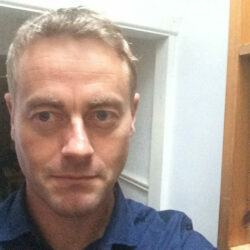
Location:
Fergal is a senior lecturer at the Department of Adult and Community Education, Maynooth, National University of Ireland and is a co-director of the Doctorate in Higher and Adult Education and the PhD in Adult and Community Education programmes. Fergal has been involved in campaigns and social movements most of his adult life. He worked in community adult education before becoming an academic and these interests led his to set up with others a Masters in Community Education Equality and Social Activism. His main areas of interest are equality, education, transformative education and participatory research and helps run a network on Active Democratic Citizenship and Adult Learning.
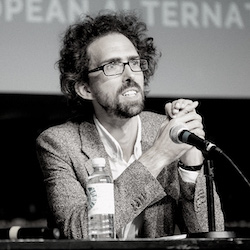
Location:
Niccolo is a director of European Alternatives. He has worked throughout Europe and North Africa networking movements, civil society, academics and artists, with a particular focus on the place of imagination and strategic foresight in opening up a pathway to change. He has been involved in founding various organisations, magazines, festivals and movements on both sides of the mediterranean.

Location:
Jana is a facilitator, activist and organiser dedicated to creating transformative learning spaces and building capacity to collaboratively strategise for system change. With a background in education, she has a passion for critical and experiential pedagogy and research interest in how social movements learn and engage in counter-hegemonic knowledge production. Organising in different networks across the Netherlands, Spain, Belgium, the UK, and Germany, she is an adventurer of coalition building and practioner of transnational activism. Drawing from experience in the social and climate justice movement, she recently coordinated the programme for People’s Summit with the COP26Coalition and now works with European Alternatives and the School of Transnational Organizing. Keeping it up with the grassroots; Berlin based.
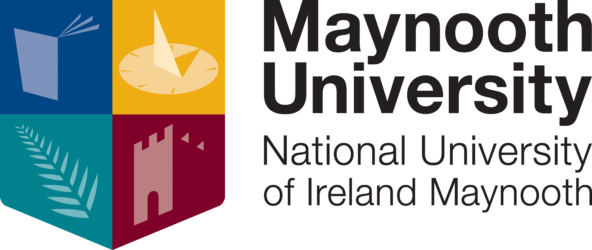
Location:
There is a long history of student and staff activism at the National University of Ireland Maynooth, a key centre for popular education and research on social movements. A Masters in Community Education, Equality and Social Activism ran for five years, working with experienced activists across a very wide range of movements and social groups. The Maynooth members of MLC are experienced movement researchers and adult educators as well as activists themselves.

Location:
An Maeyens (she/her) is a facilitator and trainer with over two decades of experience in grassroots movements. She specialises in creative, inclusive agenda design and brings deep expertise on group culture, power dynamics, and transformative learning. Starting of in the anti-globalisation movement she has trained thousands in civil disobedience, supported international coalitions, and developed multilingual training programmes and toolkits. Her work spans movements, cultures, and countries, guided by a commitment to care, accessibility, and leaderful organising.

Location:
Ari’s activism began in 2002, at age 16, as a Bosnian refugee in Canada, where they founded and coordinated a group for LGBTIQ high school students and allies. They were a co-founder and leader at kolekTIRV in Croatia and Trans Network Balkan, involved in community organizing, advocacy, program management, team coordination, capacity building, education, media work, campaigns, events, fundraising, etc. In 2024, they joined the Supervisory Board of the Croatian Trade Union Collective of United Precarious Workers and Activists (SKUPA).
Beyond the Balkan region, Ari served as a Board member at Transgender Europe (TGEU), where they held roles as Secretary, Treasurer, and later Co-chair. They have also been a trainer with the Center for Artistic Activism and served on the Advisory Committee and since 2022 as a Community Care Facilitator at FRIDA — The Young Feminist Fund. Since 2024 they are the Operations Manager at Global Philanthropy Project.

Location:
Sergio (all pronouns) was born in Romania and migrated to Germany in the early 2010s. In the past, he was a social worker with homeless people and a social consultant for Eastern European migrants for various organisations. Trained as a filmmaker, he spent two years making a documentary about the ‘civic reawakening’ in Romania and the waves of protest it brought with it. In connection to this, Sergio is currently co-steering the development of an online open-source participative knowledge production platform on activism in Romania. Over the past nine years, Sergiu has offered his skills to various journalists, grassroots collectives and campaigns, mostly working within the labour rights, climate justice, international solidarity and anti-authoritarian movements in Germany and Romania. Nonetheless, his biggest focus since 2020 has been his work as an organiser with the anarcho-syndicalist Free Workers Union, where he focuses mostly on organising Romanian migrant workers on construction sites, in factories and in the agricultural field.

Location:
Linzy Na Nakorn is a movement director, politicised somatics practitioner, community organiser and facilitator. For the past decade she has been facilitating movement, body work and creating theatre, dance and participatory performance that advocates for and organises with communities in pursuit of housing, disability and racial justice. Her movement practice focuses on trauma-informed approaches to building resilience, capacity and joy via way of the body for personal, interpersonal and community sustainability. Linzy was a Co-Director of The Big Ride for Palestine in partnership with The Gaza Sunbirds, Native Woman Ride and Middle East Children’s Alliance; using cycling as a tool for mobilising active solidarity and in support of campaigning for the rights and self-determination of the Palestinian people. Linzy is part of a UK network of activists and artists advocating for Radical Care – supporting organisations, researchers and institutions to work towards system change in societal approaches to labour, leadership and access.

Location:
Jeroen (he/him pronouns) has been involved in grassroots social movements for more than two decades now, starting back when he was fifteen. Throughout the years the fights for “climate justice” and “migrant justice” have been consistently on top of the list of struggles that make his heart beat faster. A key transformative moment for Jeroen was reading Paulo Freire’s Pedagogy of the Oppressed. Freire’s revolutionary pedagogy gave him a language to support the creation of emancipatory learning environments, rooted in a desire for collective liberation. Jeroen has also been exploring in depth Boal’s Theatre of the Oppressed and Joanna Macy’s The Work That Reconnects among other methodologies to build his trainer’s toolkit. Inspired by the liberatory possibilities of these traditions, he started an organization with a friend, LABO vzw, based in Belgium, where he has worked as a trainer and campaigner between 2013 and 2023.

Location:
Ella brings more than 10 years’ external experience working with not for profit and community based organisations across diverse themes including: advocacy for migrant communities; local community engagement in national policy making; and structural relationships between poverty and disenfranchisement, and education and poverty. Immersed in critical theory in her early 20s she brings a holistic and questioning approach, and is passionate about systemic solutions that centre relationship and interconnection between ecology and society. A long standing member of the collective, Ella has been part of the core team since the inception of the Ulex Project. Her work bridges facilitation, developing project partnerships, governance, strategy, operations, and project and programme evaluation. She has developed and overseen more than 70 partnerships with a range of different actors across European social movements.
Ulex: Latin (argelaga Catalan, gorse English) noun:
1. A thorny-evergreen flowering shrub, with a high capacity for regeneration and resilience. Its seedpods open in contact with fire and it reshoots from charred stumps. A successionary plant that grows well under challenging conditions. It improves soil fertility through nitrogen fixing, preparing the way for renewed biodiversity.
2. A traditional choice for igniting fires. Burns hot and bright.
3. A networked project adding nutrition and fertility to European social movements through training and capacity building. It kindles the realisation of social justice, ecological intelligence, and cognitive vitality.